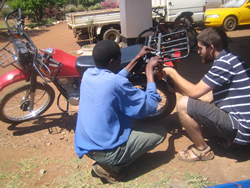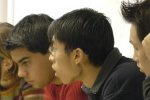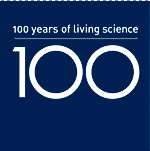Marcus Rafla
(Mechanical Engineering, 2001-2006)
shares his memories of his travels to Zambia to set up a motorcycle ambulance
Maths, some more maths and some maths in disguise was the description of mechanical engineering given to me as a prospective student during open day. The second year student wasn’t wrong of course but I was pleased to find there was more to it when working on a project with Developing Technologies, a group within the Mechanical Engineering Department. In 2006 I had the opportunity to take engineering out of the lecture theatre with a rewarding project in Zambia.
This opportunity came about through my involvement with Developing Technologies’ projects in the third and fourth years of my course at Imperial. Developing Technologies is a charity set up to use student project work to provide technical support for organisations working in developing countries. The projects are popular with students as they involve applying engineering skills to real problems with real partners. For instance, in my third year I worked with other students on a project to develop a water pasteurising unit to produce purified drinking water using the waste heat from a cooking stove. This required knowledge of combustion, heat transfer and manufacturing. We worked with students from Tribhuvan University on this project, the partnership achieving a Mondialogo Engineering Award, an award sponsored by UNESCO and Daimler-Chrysler. It is rewarding to hear that our pasteuriser is now being tested in village houses by a local organisation in Nepal.
 The project in Zambia was to build and setup testing of a motorcycle trailer which would operate as an ambulance, carrying a patient on a stretcher as well as medical staff. The trailer had been designed by Developing Technologies students and staff and we were now partnering with a Zambian company, Disacare, to make it. They were a great company to work with. Based just outside Lusaka, Disacare manufactures wheel chairs specifically for use in African villages with wide tyres for sandy soils and locally available materials and spares. Disacare also tries to improve the lives of disabled people in Zambia in many other ways, including employing a mostly disabled staff to manufacture their wheelchairs and supporting an active wheel chair basketball team. The staff were extremely welcoming and sharing accommodation with some of them was a fantastic opportunity during my two month stay, to get to know them as well as being taught a few words from the different regional languages and how to cook the local staple food, nseema.
The project in Zambia was to build and setup testing of a motorcycle trailer which would operate as an ambulance, carrying a patient on a stretcher as well as medical staff. The trailer had been designed by Developing Technologies students and staff and we were now partnering with a Zambian company, Disacare, to make it. They were a great company to work with. Based just outside Lusaka, Disacare manufactures wheel chairs specifically for use in African villages with wide tyres for sandy soils and locally available materials and spares. Disacare also tries to improve the lives of disabled people in Zambia in many other ways, including employing a mostly disabled staff to manufacture their wheelchairs and supporting an active wheel chair basketball team. The staff were extremely welcoming and sharing accommodation with some of them was a fantastic opportunity during my two month stay, to get to know them as well as being taught a few words from the different regional languages and how to cook the local staple food, nseema.
Photo above right: Setting up trials for a motorcycle trailer.
The situation the ambulance-trailer was trying to address was a lack of affordable transport from villages to hospitals. In the village where we set up the trials of the trailer we found many patients were reluctant to go to hospital when referred by the village clinic because of the costs involved. Most decide to remain at home and seriously ill patients were dying in this way. Even when the money can be found getting to hospital is slow and patients wait hours for cars to be called from town. Any suggestion that we could make transport to the clinic easier or cheaper was greeted very enthusiastically. The trailer is designed to be locally manufactured and makes use of government owned motorcycles which are at most rural clinics but only used for a few days each month to collect drugs for the clinic and distribute vaccinations. Feedback from my friends at Disacare indicates that the trials are going well and that there are good prospects for the use of the ambulance-trailer at other rural clinics.
The Developing Technologies project in Zambia was not just a great memory from Imperial but inspiration for me as to what could be achieved with my subject and possibilities for my career after graduating. Far from being just “more maths” it was a fantastic opportunity to manage an engineering project that has a real positive impact.
This experience has continued after graduating and I am now on a one year contract working with a UK company that has taken over another Developing Technologies project to develop a low-cost percussion drill for sinking water wells. I am looking forward to spending much of next year in Tanzania and Sierra Leone testing out this technology.
(More details of Developing Technologies can be found on www.developingtechnologies.org)
© 2007 Imperial College London

Through the first decade of the twenty-first century the campaign seeks to philanthropically raise £207 million from Imperial’s alumni, staff and friends, and donations from charitable foundations and industry.
Where your support can make a differenceGive now

Imperial’s Centenary Year provides an opportunity to recognise and celebrate members of the Imperial community.
View staff and student portraits
